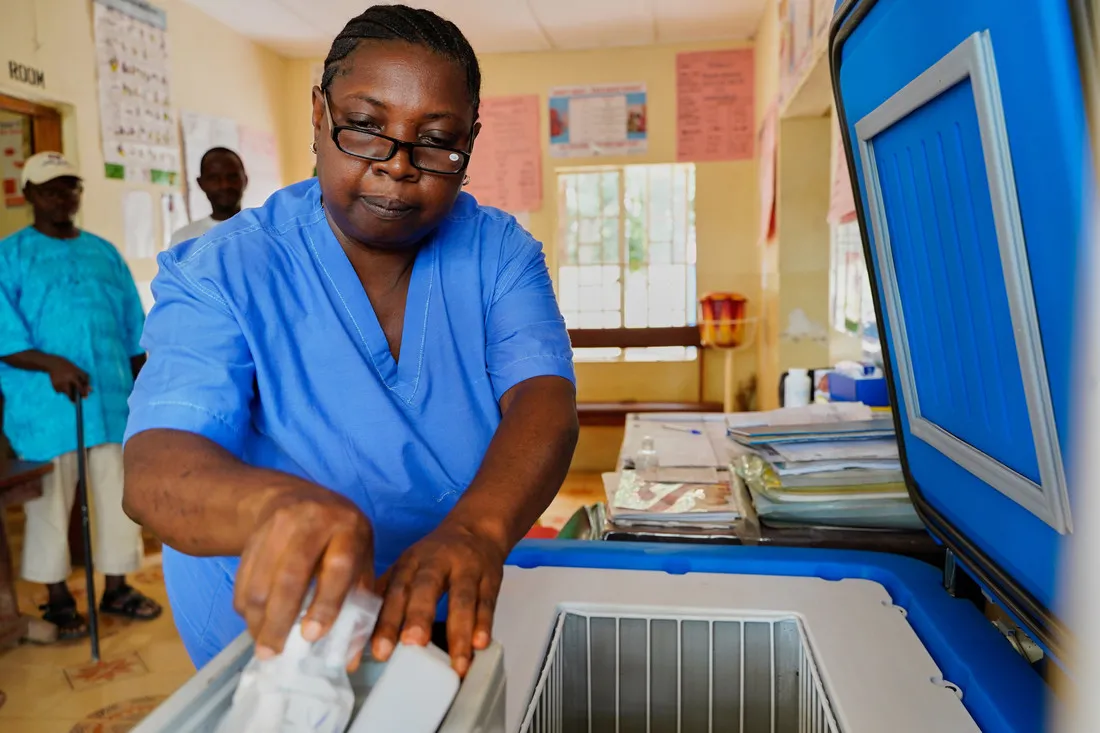CARE is stepping in to help communities around the globe ensure more than 100 million of the most marginalized and vulnerable people – including women, those living in extreme poverty, and nearly 275,000 healthcare workers – have access to the COVID vaccines over the coming year.
As the vaccines become widely available, making sure that they reach these populations quickly and in an equitable, fair manner will be a historic undertaking. CARE is well placed to take on this challenge. The organization has led global humanitarian response efforts, including immunization and vaccine delivery from routine childhood immunizations, to polio eradication campaigns, to Ebola response in conflict settings. Further, CARE’s expertise in logistical planning, preparation and coordination among marginalized and difficult to reach communities will inform its work as we navigate the road to recovery from COVID-19.
“Since the start of the pandemic CARE has built a COVID-19 response infrastructure addressing prevention needs and the economic devastation caused by the crisis. As we move to put an end to this pandemic, CARE will use our global resources and expertise to ensure that the vaccine is distributed quickly and fairly to those facing extreme poverty, and harsh living conditions,” President and CEO of CARE USA, Michelle Nunn said. “COVID has proven that our world is intricately connected. None of us are safe from this pandemic, until all of us are safe.”
CARE’s global vaccine response will focus on three key areas:
Healthcare workers: Since the start of the COVID-19 pandemic, CARE has stood by workers on the frontlines of the crisis – especially women who make up 70% of frontline healthcare workers around the world– from community health volunteers to midwives. CARE will continue its commitment to supporting them, as they continue serving their communities.
Women and Refugees: Women perform the lion’s share of caregiving tasks, both in formal healthcare settings and in the home, placing them at higher risk of exposure to the virus. Additionally, refugees and migrants have limited access to healthcare services and may not qualify for programs intended for citizens of host countries. CARE will work to ensure these groups are not sent to the back of the vaccine lines.
Community Education: CARE is a trusted partner in the communities we serve, and we’ll provide key education resources to help combat vaccine stigma within those communities so people can feel safe and confident taking the vaccine. CARE will also advocate to influence U.S. policy in regard to vaccine availability and distribution.
CARE’s core mission is to save lives, defeat poverty and achieve social justice – we believe that health rights are human rights. This is why the organization is committed to ensuring the vaccine is going to those most in need, regardless of where they live.
For More Information Contact:
Rachel Kent
Senior Press Officer
Rachel.Kent@care.org
+1.516.270.8911

